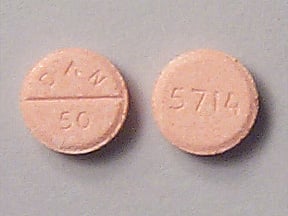
Amoxapine Coupons & Savings Card – Discount Prices from $12.38
My prescription
Edit
50MG, Amoxapine (21 Tablets)
Select pharmacy

CVS
$27.60
COUPON PRICE
Albertsons
$12.38
COUPON PRICE
Walgreens
$13.00
COUPON PRICE
Walmart
$16.69
COUPON PRICEAmoxapine savings card
Show this card to your pharmacist
Albertsons
$12.38
BIN
ID
PCN
GRP
019876
LH82336302
CHIPPO
LHX
Powered by
Related tricyclic antidepressants prescriptions
More prescriptions for depression
Related tricyclic antidepressants prescriptions
More prescriptions for depression
Amoxapine dosage forms
Dosage Quantity Price from Per unit 25MG 90 Tablets $20.37 $0.23 25MG 100 Tablets $21.80 $0.22 50MG 21 Tablets $12.38 $0.59 50MG 90 Tablets $28.40 $0.32 50MG 100 Tablets $30.72 $0.31 100MG 30 Tablets $19.15 $0.64 100MG 90 Tablets $42.44 $0.47 100MG 100 Tablets $46.32 $0.46 150MG 30 Tablets $25.86 $0.86
| Dosage | Quantity | Price from | Per unit |
|---|---|---|---|
| 25MG | 90 Tablets | $20.37 | $0.23 |
| 25MG | 100 Tablets | $21.80 | $0.22 |
| 50MG | 21 Tablets | $12.38 | $0.59 |
| 50MG | 90 Tablets | $28.40 | $0.32 |
| 50MG | 100 Tablets | $30.72 | $0.31 |
| 100MG | 30 Tablets | $19.15 | $0.64 |
| 100MG | 90 Tablets | $42.44 | $0.47 |
| 100MG | 100 Tablets | $46.32 | $0.46 |
| 150MG | 30 Tablets | $25.86 | $0.86 |
Amoxapine Warnings
The use of antidepressant medications, such as Amoxapine, is essential for treating mood disorders, including depression. Despite their benefits, it is crucial to be aware of potential risks and necessary precautions. Below are key safety and warning details for patients and healthcare professionals to consider:
Suicidal Thoughts and Behavior: Amoxapine may increase the risk of suicidal ideation and actions, especially in individuals aged 24 or younger. Be particularly vigilant for any signs of new or worsening depression, suicidal thoughts, or behavioral changes, primarily during the initial months of treatment or following a dosage adjustment. Immediate consultation with a healthcare provider is advised if such symptoms are observed.
Bipolar Disorder Considerations: Depression may sometimes indicate an underlying bipolar disorder, which Amoxapine does not treat and may exacerbate by triggering manic episodes. It is crucial to undergo screening for bipolar disorder prior to starting treatment and to provide a complete medical history, including any family history of bipolar disorder.
Eye Health Concerns: Amoxapine, like many antidepressants, can cause side effects related to vision. Those with existing eye conditions, such as narrow-angle glaucoma, should notify their healthcare provider if they experience visual changes or discomfort.
Movement Disorders: Long-term use of Amoxapine can lead to tardive dyskinesia (TD), characterized by involuntary facial movements. This is more prevalent in older adults, especially women. Report any symptoms of TD immediately to a healthcare provider, as adjusting the medication might alleviate these symptoms.
Neuroleptic Malignant Syndrome (NMS): Though rare, NMS is a potentially fatal condition associated with Amoxapine. Symptoms include high fever, increased heart rate, severe muscle stiffness, and confusion. Immediate medical intervention is necessary if these occur.
Contraindications: Avoid using Amoxapine if you are currently, or have recently (within the past 14 days), been on a monoamine oxidase inhibitor (MAOI). Additionally, those who have recently experienced a heart attack and are still in recovery should not use this medication.
These guidelines ensure the safe use of Amoxapine and facilitate prompt action in case of adverse effects or interactions. Always engage in open communication with your healthcare provider regarding any concerns or symptoms.
Amoxapine Side Effects
Common side effects:
- Drowsiness
- Dry mouth
- Constipation
- Blurred vision
- Headache
- Dizziness
- Weakness
- Changes in appetite or weight
Serious side effects:
- Fainting
- Significant mood changes (confusion or hallucinations)
- Numbness in extremities
- Severe nausea
- Irregular heartbeat
- Intense headaches
- Tardive dyskinesia
- Neuroleptic malignant syndrome
- Increased prolactin levels
- Serious allergic reactions
- Blood disorders
- Liver issues
- Severe abdominal pain
- Yellowing of the skin
- Easy bruising
Amoxapine Interactions
Interactions with high risk of serious adverse effects and should be avoided:
- MAO inhibitors (isocarboxazid, Linezolid, methylene blue, moclobemide, phenelzine, procarbazine, Rasagiline, safinamide, Selegiline, Tranylcypromine)
Interactions with moderate risk that may require dose adjustment, closer monitoring, or timing changes:
- Bromopride
- Clorgyline
- Grepafloxacin
- Levomethadyl
- Metoclopramide
- Ranolazine
- Opioid pain relievers (codeine, hydrocodone)
- Alcohol
- Marijuana (cannabis)
- Sleep or anxiety medications (Alprazolam, Lorazepam, Zolpidem)
- Muscle relaxants (Carisoprodol, Cyclobenzaprine)
- Antihistamines (Cetirizine, diphenhydramine)
- Antipsychotics
- Antidepressants
- Thyroid supplements
- Certain drugs for high blood pressure (Clonidine)
Interactions with low risk that usually do not require a change in therapy:
- Acenocoumarol
- Arbutamine
- Atomoxetine
- Cannabis
- Carbamazepine
- Dicumarol
- S-Adenosylmethionine
